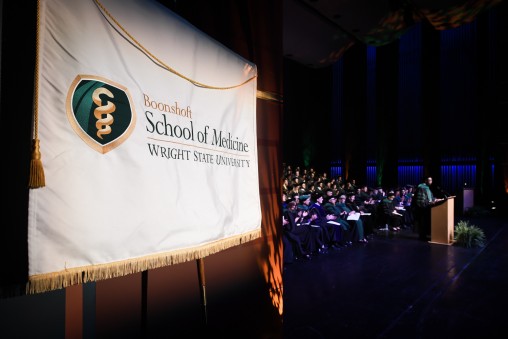 The Wright State University Boonshoft School of Medicine will hold its annual graduation ceremony on Friday, May 26, at 6:30 p.m., at the Victoria Theatre in downtown Dayton. The graduating class includes 99 medical students.
The Wright State University Boonshoft School of Medicine will hold its annual graduation ceremony on Friday, May 26, at 6:30 p.m., at the Victoria Theatre in downtown Dayton. The graduating class includes 99 medical students.
Vivek H. Murthy, the 19th U.S. surgeon general, will deliver the commencement address. The son of immigrants from India, Murthy discovered a love for the art of healing early in his childhood while spending time in his father’s medical clinic in Miami, Florida. He earned his bachelor’s degree from Harvard University and his M.D. and M.B.A. degrees from Yale University. He completed his residency training at Brigham and Women’s Hospital in Boston and Harvard Medical School, where he later joined the faculty as an internal medicine physician and instructor.
The Boonshoft School of Medicine graduation ceremony can be viewed through live streaming at wright.edu/streaming.
Each student’s journey through medical school is unique. Here are a few of their stories.
Brittainy Erby has known since she was 10 years old that she wanted to become a doctor. Shortly after birth, doctors noticed that the left side of her body was about two centimeters longer than the right side. She grew up with a limp, but doctors operated on her knee at age 10 to correct the problem.
Jared Liston became inspired to become a doctor after he wrote a middle school research paper about a career in medicine. He saw medicine as a way to use science, his favorite subject, to help people. During high school, he shadowed his family doctor and spent time volunteering at Nationwide Children’s Hospital in Columbus. After seeing the impact that medicine and physicians have on patients’ lives, he knew he wanted to be a doctor.
Minh-Tri Nguyen’s childhood influenced his decision to become a doctor. Born in a rural part of Vietnam, he was one of 10 children. His parents were artichoke and rose farmers raising their children on a limited income. Six of his siblings died from lack of access to health care, and his 4-year-old brother was turned away from the hospital in Vietnam because his parents couldn’t pay the doctor.
Kevin Purcell witnessed his father, mother and aunt heal the physical ailments of their patients but also soothe patients who were suffering spiritually and emotionally. When he was old enough, his father allowed him to shadow him on his afternoon rounds. That experience cemented his desire to be a doctor.
Ashley Subler recalls sitting in a pre-med meeting while she was an undergraduate student at Miami University. The adviser told the room full of 300 students that only a third of them would become doctors. Despite the odds, Subler persevered and did not give up on her dream.
Susan Wherley did not consider medicine as a career path until her late high school years. She knew she wanted to work in international public health, but she wasn’t sure she wanted to go into medicine. The burnout, debt and stress associated with a career in medicine weighed heavily on her.
More details about each of these graduating medical students are included in the stories below.
Brittainy Erby: Advocating for children and adolescents
Brittainy Erby has known since she was 10 years old that she wanted to become a doctor. She was born prematurely and was followed very closely by her physicians. Shortly after she was born, doctors noticed that the left side of her body was about two centimeters longer than the right side. She walked with a limp. At age 10, she had surgery on her knee to help with the limp. Following the surgery, she was in excruciating pain, but the doctors did their best to comfort her and her family.
“My journey to recovery was long, but I was able to participate in sports and live a full life,” said Erby, who is from Cleveland and earned her undergraduate degree from Ohio University. “I was so grateful to my physicians. That’s when I decided I wanted to be a physician and impact the lives of others through medicine, just as my life had been impacted.”
When Erby was in college, her grandfather died. He had been like a second father to her. “One can never be truly ready for the death of any family member,” Erby said. “It was hard to continue focusing on my studies, but I knew that I had to carry on and make him proud. I wanted to reach my goal of becoming a doctor.”
At the Boonshoft School of Medicine, Erby studied day and night and was involved in several student organizations, including Anesthesiology Interest Group, Pediatrics Club, Student National Medical Association, Tuneshoft A Cappella Group, Wright State In His Presence Gospel Choir and Horizons in Medicine. Through the Global Health Initiative, she traveled to Jamaica as part of a medical service trip.
However, she also faced several family emergencies during medical school. Her godmother died, her mother went into a diabetic coma, and her grandmother was diagnosed with cancer.
“It was hard to focus and stay on task when those things happened, but I had to keep pushing forward,” Erby said. “The Boonshoft School of Medicine is a very supportive school when it comes to family emergencies. I truly appreciate the support that I received from the faculty, staff, my classmates and colleagues. I am so grateful for all of the love and support.”
Erby will begin a residency in psychiatry at the Medical University of South Carolina in Charleston this summer. She plans to become a child psychiatrist.
“I want to be an advocate for children and adolescents in the field of psychiatry, and I want to go home each day knowing that I did the very best and most that I could for every one of my patients,” she said. “I am so excited for the next step in this journey, and I hope to encourage young minority females from underserved areas to pursue their dreams in the field of medicine.”
Jared Liston: Preparing for a career in plastic surgery
A middle school research paper on a career in medicine sparked Jared Liston’s interest in becoming a physician. After writing his paper, he saw medicine as a way to use science, his favorite subject, to help people. During high school, he shadowed his family doctor and spent time volunteering at Nationwide Children’s Hospital in Columbus. After seeing the impact that medicine and physicians have on patients’ lives, he knew he wanted to be a doctor.
As Liston transitioned to college at Denison University, where he majored in biology, he realized that the classes were more challenging than high school. He feared not being able to get into medical school. Discouraged, he examined his study strategies and put in lots of late nights studying. His grades improved, and he was accepted into medical school.
“While my experiences from my early undergraduate career were frustrating, they were a valuable lesson,” said Liston, who is from Gahanna, Ohio. “That experience motivated me to get off to a stronger start at the beginning of medical school.”
The first two years of medical school at the Boonshoft School of Medicine were marked by constant studying. “During those years, I just tried to stay as dedicated to my studies as I could,” said Liston, who was active in several student organizations, including the Admissions Committee, Alpha Omega Alpha Honor Medical Society, Phi Rho Sigma Medical Society, Student to Student and the James B. Peoples, M.D. Surgical Society. “I kept telling myself that a strong pre-clinical foundation would only help me excel when it came time to interact and care for patients during my third and fourth years of medical school.”
During his third- and fourth-year clerkships, he felt like he was finally making a difference in patients’ lives, even if it was just by taking extra time to talk with a patient about something other than his or her medical problems.
“On a few occasions, I was lucky enough to have patients tell me that I’m going to be a good doctor or that they would like to have me as their doctor one day,” he said. “Moments like this made all of the stress, studying and sacrifices I had made completely worth it.”
He found his classmates to be a great support network.
“We all go through very similar things over the four years of medical school,” said Liston, who also praised the support he received from his family, especially his parents. “My medical school friends understand the various challenges of medical school, and it was easy and therapeutic to talk to them about anything.”
Beginning this summer, Liston will spend the next six years doing a residency in plastic and reconstructive surgery at the University of Virginia in Charlottesville. He is interested in all areas of plastic surgery, but he is particularly drawn to pediatric craniofacial surgery and complex adult reconstructive surgery.
“I hope to use the skills and expertise that I will acquire during residency to give patients whose lives have been negatively affected by cancer, trauma and congenital problems the ability to continue living their lives as fully and confidently as possible,” he said. “I have had wonderful mentors in my plastic surgery experiences. I would like to give back and teach medical students and residents one day.”
Minh-Tri Nguyen: Working toward becoming a hematologist/oncologist
Minh-Tri Nguyen’s childhood influenced his decision to become a doctor. Born in a rural part of Vietnam, he was one of 10 children. His parents were artichoke and rose farmers raising their children on a limited income. Six of his siblings died from lack of access to health care, and his 4-year-old brother was turned away from the hospital in Vietnam because his parents couldn’t pay the doctor.
“I don’t know when or how old I was when I realized that I wanted to become a physician,” said Nguyen, who immigrated to the United States with his parents as a child. “But I knew I had to do something to help people struggling.”
As part of an immigrant family that was trying to establish themselves in the United States, Nguyen struggled financially growing up in Akron. His parents worked hard to make ends meet. Each dollar they made was already spent. In elementary school, he and his siblings picked strawberries to sell. Despite his family’s economic hardship, his goal was to graduate from high school, go to college and attend medical school.
During his senior year of high school, he applied for dozens of scholarships. He even entered a “Vietnamese Idol” competition in hopes of winning some money to fund college. He wanted to attend Case Western Reserve University in Cleveland.
“I needed a miracle to fund my way through college without burdening my parents, who were still raising my younger siblings,” he said. “I found that miracle in Mrs. Caroline Cook of Akron, Ohio, and her wonderful children who graciously chose me as the recipient of their four-year scholarship.”
Like many other medical students, he has incurred debt to finance his medical degree. But he has not let that get him down.
At the Boonshoft School of Medicine, he was the class president for his first two years of medical school. He elected not to run a third year so that he could volunteer at the Hospice of Greater Dayton. He also was involved in Student to Student, the American Medical Association and Reach Out of Montgomery County. During his first year of medical school, he participated in the school’s New Orleans spring break service trip, a service-learning elective that occurs over spring break for first-year medical students.
Through the medical school’s Global Health Initiative, which provides opportunities for experiential learning abroad within the medical field, Nguyen also planned and implemented his own research in his hometown of Dalat, Vietnam. He is interested in hematologic and oncology research. Nguyen will begin his residency in internal medicine this summer at Case Western/MetroHealth Medical Center in Cleveland. He plans to become a hematologist/oncologist.
“I would like to do my part in treating and helping patients who are battling cancer,” he said.
Kevin Purcell: Following in his family’s footsteps
From a young age, Kevin Purcell witnessed his father, mother and aunt heal the physical ailments of their patients but also soothe patients who were suffering spiritually and emotionally. When he was old enough, his father allowed him to shadow him on his afternoon rounds at the hospital.
“That experience cemented my desire to be a doctor,” said Purcell, whose parents are immigrants from the Caribbean island of Grenada. “My dad is a vascular surgeon. My mom is a registered nurse, and my aunt is a pediatrician. I wanted to be like them because they impacted people’s lives.”
Purcell, who is from Brooklyn, New York, graduated from the State University of New York (SUNY) at New Paltz in 2010 with bachelor’s degrees in black studies and cell and molecular biology. He earned a master’s degree in science and physiology in 2012 from Stony Brook University and a second master’s degree in public health in 2013 from SUNY Downstate.
Before medical school, he co-founded the mentorship/community service organization Get Up & Get Out and worked as a youth counselor, community volunteer and college host. The organization exposed at-risk youth in the New York City area to higher education and its benefits. He also was a workshop facilitator for the Kings Against Violence Initiative, a hospital and school-based anti-violence intervention program. One of his life goals is to start a minority mentorship program for young males in Brooklyn. He wants to teach them about the importance of education, professionalism and life skills.
During medical school, Purcell participated in several student organizations and the admissions committee. He traveled to Ghana and Cambodia on medical service trips as part of the Boonshoft School of Medicine’s International Education Program. In the fall of 2016, Purcell was one of 15 medical students nationwide to receive the 2016 American Medical Association Foundation Physicians of Tomorrow Award. He is the fifth Boonshoft School of Medicine student to receive the award since 2012. He received a $10,000 tuition-assistance scholarship.
Purcell will begin his residency this summer in orthopaedic surgery at University Hospitals – Jackson in Jackson, Mississippi.
Ashley Subler: Working to make a difference in the lives of others
Ashley Subler recalls sitting in a pre-med meeting while she was an undergraduate student at Miami University. The adviser told the room full of 300 students that only a third of them would become doctors. Despite the odds, Subler persevered and did not give up on her dream.
Armed with determination, Subler studied hard to prepare for medical school. “Many of my classmates were brilliant in college, and school was easy for them,” said Subler, who is from Worthington, Ohio. “I have always had to work a little harder for the same results. I had a lot of self-doubt about my ability to compete with these individuals for a spot in medical school.”
That hard work and persistence resulted in a spot at the Boonshoft School of Medicine, where Subler has been involved in several student organizations. She is president of the class of 2017 and involved in the American Medical Women’s Association, Boonshoft PRIDE and the Psychiatry Interest Group. She worked with the HOPE project through the Alzheimer Resource Center. She spent time with families struggling with dementia to learn about day-to-day life with an incurable disease. She also interned with the Hazelden Betty Ford Institute for Recovery Advocacy, where she learned about the treatment of addiction. She completed the medical school’s International Education Program track, spending time in Ghana and South Africa.
Like most medical students, Subler found the work load to be challenging. “Medical students and residents are expected to be on top of their game and maintain their studies while working 80 hours a week and 24-hour shifts,” she said. “It’s a demanding field.”
Her medical school classmates became like family, supporting one another.
“We understood what one another was going through. I couldn’t have done it without them,” she said. “My parents also have been very supportive. My dad is a physician, and my parents got married when he was in residency. They both understood the work required.”
Subler will begin a residency in psychiatry this summer at Emory University School of Medicine in Atlanta.
“I realized I loved the ambiguity of psychiatry. It appealed to my artistic nature,” she said. “Medicine is a profession that combines compassion and the pursuit of knowledge in equal parts. Medicine also has a humanitarian aspect, allowing me to work with people and doing my part to help others.”
Susan Wherley: Eliminating the stigma associated with women’s bodies
Susan Wherley did not consider medicine as a career path until her late high school years. She knew she wanted to work in international public health, but she wasn’t sure she wanted to go into medicine. The burnout, debt and stress associated with a career in medicine weighed heavily on her.
“My biggest challenge was convincing myself that medical school was a good idea,” said Wherley, who graduated from Harvard University with a bachelor of arts degree and Pennsylvania State University with a master’s degree in homeland security and public health preparedness. “It wasn’t until after college I felt for sure that the best way to contribute to improving the health landscape globally was by getting a medical degree.”
She knew medicine was her calling during her third year of medical school when she worked with James K. Horlacher, M.D., a clinical associate professor in the Department of Obstetrics and Gynecology at the Boonshoft School of Medicine.
“Not only did he display an immense amount of joy and empathy in serving others, he was one of the first physicians to treat me as an equal and allow me to participate actively in caring for the lives of women,” said Wherley, who is from Cleveland Heights, Ohio. “Working with patients feels new, fun and rewarding every single day. I know I won’t tire of that joy, even on the hardest of days.”
The hardest part of medical school for Wherley was the challenge of navigating friendships with such limited free time because of all of the time she spent studying and learning in her clerkships at local hospitals. She missed weddings, birthdays and other big events of those close to her.
“Relationships inevitably suffer when you are in medical school,” Wherley said. “While I am lucky to be surrounded by understanding friends, I constantly regretted not having more time and energy to devote to my loved ones. However, having their support was more than enough to keep me dedicated to the task at hand.”
During medical school, she was involved in several student organizations, including the American Medical Women’s Association, the Global Health Initiative, Medical School Student Council, Finding Meaning in Medicine and Medical Students for Choice. She has worked with a diverse group of physicians and patients in a variety of medical settings, including abroad in India and Cambodia. In Cambodia, Wherley volunteered in an HIV ward and worked with Prak Narom, M.D., one of the foremost HIV physicians in Southeast Asia. She learned a great deal about how HIV is managed in a resource-limited setting.
Wherley will begin a residency in obstetrics and gynecology this summer at Case Western/University Hospitals Cleveland Medical Center.
“Women’s health is my passion, and it is my goal to eliminate the stigma associated with women’s bodies,” said Wherley, who also wants to treat women who suffer from health crises such as rape, trafficking and abuse and serve vulnerable populations in inner cities here and abroad. “As an obstetrician gynecologist, I want to be a physician who educates and strives to help patients feel free to discuss subjects that society has deemed taboo.”

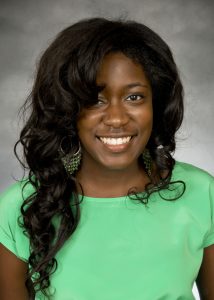
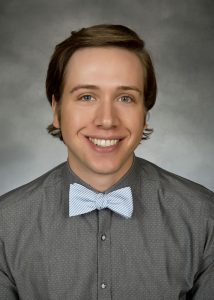
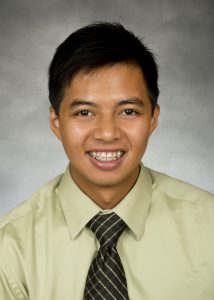
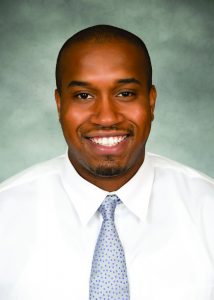
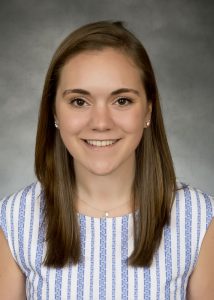
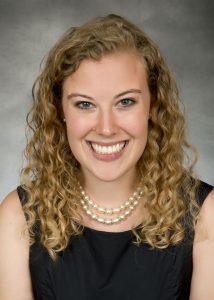
 Wright State University Foundation awards 11 Students First Fund projects
Wright State University Foundation awards 11 Students First Fund projects  Gov. DeWine reappoints Board Treasurer Beth Ferris and names student Ella Vaught to Wright State Board of Trustees
Gov. DeWine reappoints Board Treasurer Beth Ferris and names student Ella Vaught to Wright State Board of Trustees  Joe Gruenberg’s 40-Year support for Wright State celebrated with Honorary Alumnus Award
Joe Gruenberg’s 40-Year support for Wright State celebrated with Honorary Alumnus Award  Wright State’s elementary education program earns A+ rating for math teacher training
Wright State’s elementary education program earns A+ rating for math teacher training  Wright State’s Calamityville hosts its largest joint medical training operation
Wright State’s Calamityville hosts its largest joint medical training operation 